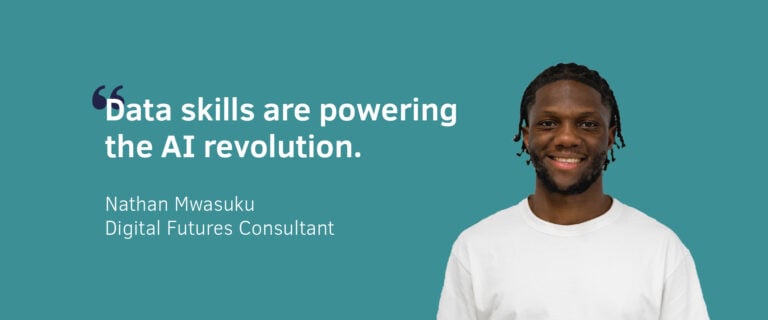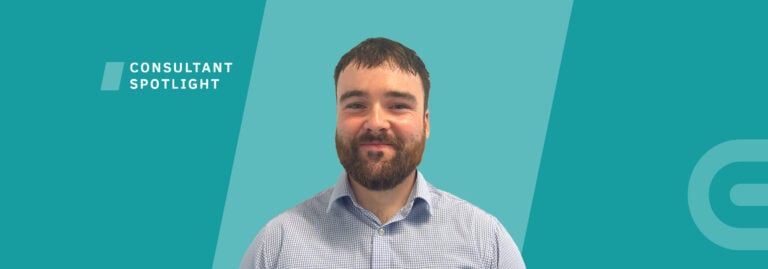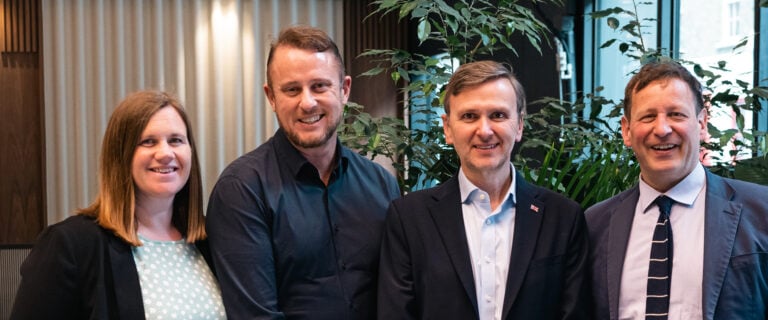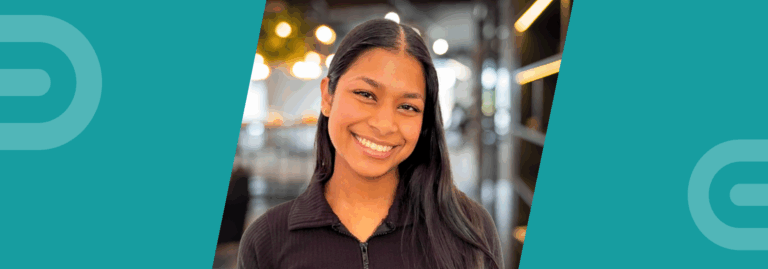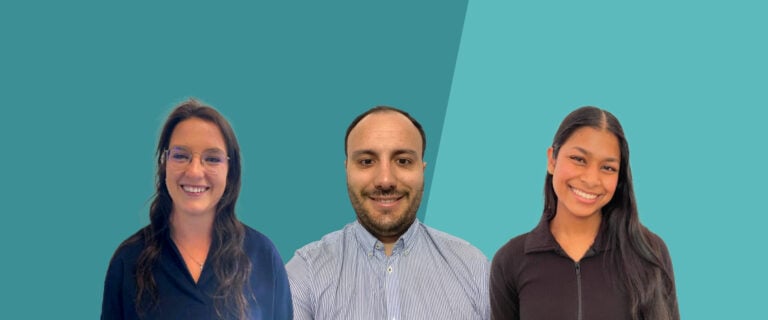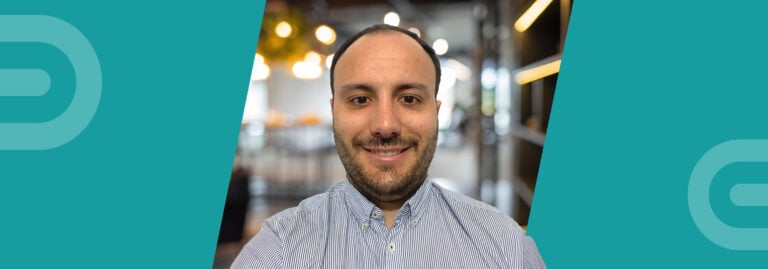We spoke to Digital Futures consultant, Stephen, about his choice to pivot from a career in financial services to a career in technology through the Future Talent programme.
Tell me about your background, where were you before you found Digital Futures?
I graduated university with a BSc in Biomedical Sciences and I moved into a role in financial services. I started at entry level there and worked my way through the ranks to a senior case handler position. At this point, I found out that it was quite stagnant and the opportunity for me to grow my career from there was quite narrow. I then discovered tech opportunities and did more research.
How did you discover tech?
Mostly through networking and personal research – someone in my network mentioned cloud engineering and told me to look into it. I also started doing research in the background prior to this, so discovering opportunities in tech came as a combined effort of the networking and research. The research was fascinating – I still talk about the things I found out to this day. What was really clear to me was that cloud was the way forward – it offers peak tech services with the lowest upfront cost.
At what point did you choose to make that career change?
There weren’t many opportunities for me to grow at the company where I was working. I started applying to a lot of places and tried to get myself into any entry-level role. I even tried to move across departments. I was trying to get into IT support because from there I could go into infrastructure engineering if I did my cloud certifications. It was hard to find the right kind of role so the timing was great when I came across the role with Digital Futures.
I had been following Digital Futures for a while before I applied. I actually applied unsuccessfully once before reapplying again and getting a place.
What did you change in your approach the second time you applied?
I connected with quite a lot of Digital Futures consultants on LinkedIn and asked them for advice. That gave me a real insight into what the company was looking for and I worked towards achieving that. One of the main pieces of advice they gave me was the importance of being proactive and doing some self-study before you apply. I started to teach myself some coding to prepare.
You said Digital Futures had been on your radar for a while. What appealed to you about us?
It’s rare you come across an opportunity like this. Digital Futures offered a pathway for anyone, not just people with a technical background, to make that change into tech. Right now, tech is taking over and is such an important aspect of everyone’s life. Digital Futures offers the level of training and support you need to start out. It also offers you that reassurance and connections to roles through the placement.
How did you find the Digital Futures Academy?
The Academy was good, the learning is really structured. I really like the hands-on lab sessions. It was definitely challenging at times, particularly because so much is packed into such a short space of time. I think the main thing I learned was that in tech, you can get stuck a lot but you just have to try different things. Also, going to your peers for support is so important. I would always go to anyone that was maybe ahead of me and speak to them to help me overcome problems. That’s really helped me in my current role – if I come across a roadblock, I’ll ask my colleagues or seniors.
What role are you working in now?
I’m working as a digital transformation consultant at an insurance company. Even though it wasn’t a direct cloud role, it was an opportunity that came at the right time and I met the criteria. The way I would describe it is a lot of the role is asking questions and understanding the root cause of what you’re working on and trying to deliver. If the business has a problem and you need to make changes to a system, you need to understand the problem, not the symptom. Our work is about analysing the issue and then safely changing the system. I’ve worked a lot around change management.
What’s your favourite thing about your placement?
I like the support and flexibility that the company adopts. They’re able to work with everyone and don’t they and fit you into one box. The organisation tries to understand us as individuals, which has made everyone really comfortable. They actively encourage us working together – I’m a big believer in teamwork. The small thing you’re doing really does benefit the whole organisation.
Altogether, it’s been a great experience so far. I don’t feel like an outsider; I receive the same treatment and level of respect as permanent staff.
What do you think has been the most important part of your Digital Futures journey?
Getting that technical training and the professional skills training was very important. Knowing the technical side is good but you need the confidence and business acumen to integrate and succeed on site. I think that’s been a really important part of me fitting in on client site. The company is welcoming but a lot of it hinges on my professional and people skills that Digital Futures helped me with.
Find our more about our brand-new digital transformation pathway.

